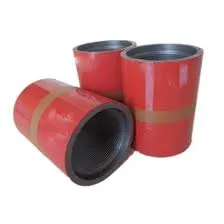- Afrikaans
- Albanian
- Amharic
- Arabic
- Armenian
- Azerbaijani
- Basque
- Belarusian
- Bengali
- Bosnian
- Bulgarian
- Catalan
- Cebuano
- Corsican
- Croatian
- Czech
- Danish
- Dutch
- English
- Esperanto
- Estonian
- Finnish
- French
- Frisian
- Galician
- Georgian
- German
- Greek
- Gujarati
- Haitian Creole
- hausa
- hawaiian
- Hebrew
- Hindi
- Miao
- Hungarian
- Icelandic
- igbo
- Indonesian
- irish
- Italian
- Japanese
- Javanese
- Kannada
- kazakh
- Khmer
- Rwandese
- Korean
- Kurdish
- Kyrgyz
- Lao
- Latin
- Latvian
- Lithuanian
- Luxembourgish
- Macedonian
- Malgashi
- Malay
- Malayalam
- Maltese
- Maori
- Marathi
- Mongolian
- Myanmar
- Nepali
- Norwegian
- Norwegian
- Occitan
- Pashto
- Persian
- Polish
- Portuguese
- Punjabi
- Romanian
- Russian
- Samoan
- Scottish Gaelic
- Serbian
- Sesotho
- Shona
- Sindhi
- Sinhala
- Slovak
- Slovenian
- Somali
- Spanish
- Sundanese
- Swahili
- Swedish
- Tagalog
- Tajik
- Tamil
- Tatar
- Telugu
- Thai
- Turkish
- Turkmen
- Ukrainian
- Urdu
- Uighur
- Uzbek
- Vietnamese
- Welsh
- Bantu
- Yiddish
- Yoruba
- Zulu
API 5CT Casing Couplings for Enhanced Oil and Gas Well Integrity
Understanding API 5CT Casing Couplings An Overview
In the oil and gas industry, the importance of casing and couplings cannot be overstated. These components play a crucial role in maintaining the integrity and stability of wellbore structures. Among the various standards governing casing and couplings, API 5CT is one of the most widely recognized. Developed by the American Petroleum Institute (API), the API 5CT standard specifies the technical requirements for casing and tubing used in the oil and natural gas industry, ensuring that these components can withstand extreme conditions.
What is API 5CT?
API 5CT is a specification that outlines the requirements for casing and tubing for use in oil and natural gas wells. This standard includes a variety of grades, sizes, and connection types necessary for different applications in drilling operations. API 5CT casings are designed to provide structural integrity to the well, prevent the collapse of the borehole, and isolate the various layers of rock and fluids in the subsurface environment.
The Role of Casing and Couplings
Casing is a series of steel pipes installed in a drilled well to stabilize the wellbore and prevent the influx of water, gas, or other contaminants. Couplings are the short sections of pipe used to connect two casing pipes, ensuring a tight and secure connection between them. The integrity of these connections is paramount, as any failure could lead to significant safety hazards and financial losses. API 5CT casing couplings are engineered to withstand high pressures and corrosive environments, making them essential for successful drilling operations.
Types of API 5CT Casing Couplings
API 5CT couplings come in several types, each designed for specific applications and requirements. The most common types include
1. Regular Couplings (RC) These are standard couplings used for connecting casing pipes of the same diameter. They are characterized by their straightforward design, making them easy to install.
2. Long Couplings (LC) Longer than regular couplings, these are employed when additional overlap is needed between the casing joints, which enhances the strength of the connection.
api 5ct casing coupling

3. Premium Couplings Designed for higher performance, premium couplings have enhanced features, such as better sealing properties and resistance to deformation. They are used in high-pressure and high-temperature applications.
Material Standards and Quality Assurance
API 5CT casing couplings are manufactured from high-quality steel grades to ensure durability and reliability. Common grades include L, J, H, and N, each corresponding to specific yield strengths and mechanical properties. Quality assurance is a critical aspect of production; manufacturers must adhere to rigorous testing and inspection protocols to ensure that every coupling meets the necessary standards.
Importance of Compliance
Compliance with API 5CT standards is essential for producers and operators in the oil and gas sector. It not only ensures compatibility and interoperability among equipment but also promotes safety and operational effectiveness. Non-compliance can lead to catastrophic failures, extensive downtime, environmental hazards, and increased costs. Therefore, it is vital for companies to source their casing and coupling materials from reputable suppliers that adhere to API standards.
Future Trends in Casing and Couplings
The industry is moving towards advancements in materials technology, including the development of corrosion-resistant alloys and improved manufacturing processes. These innovations aim to enhance the efficiency and longevity of casings and couplings, particularly in harsh environments. Additionally, there is a growing emphasis on sustainable practices, with efforts to minimize the environmental impact of drilling operations.
Conclusion
In summary, API 5CT casing couplings are a foundational component in the oil and gas industry, vital for ensuring the safety and efficiency of drilling operations. Understanding their specifications, types, and requirements is crucial for anyone involved in the drilling sector. As the industry evolves, staying informed about new technologies and compliance standards will be essential for success in this challenging field.
-
Tubing Pup Joints: Essential Components for Oil and Gas OperationsNewsJul.10,2025
-
Pup Joints: Essential Components for Reliable Drilling OperationsNewsJul.10,2025
-
Pipe Couplings: Connecting Your World EfficientlyNewsJul.10,2025
-
Mastering Oilfield Operations with Quality Tubing and CasingNewsJul.10,2025
-
High-Quality Casing Couplings for Every NeedNewsJul.10,2025
-
Boost Your Drilling Efficiency with Premium Crossover Tools & Seating NipplesNewsJul.10,2025







